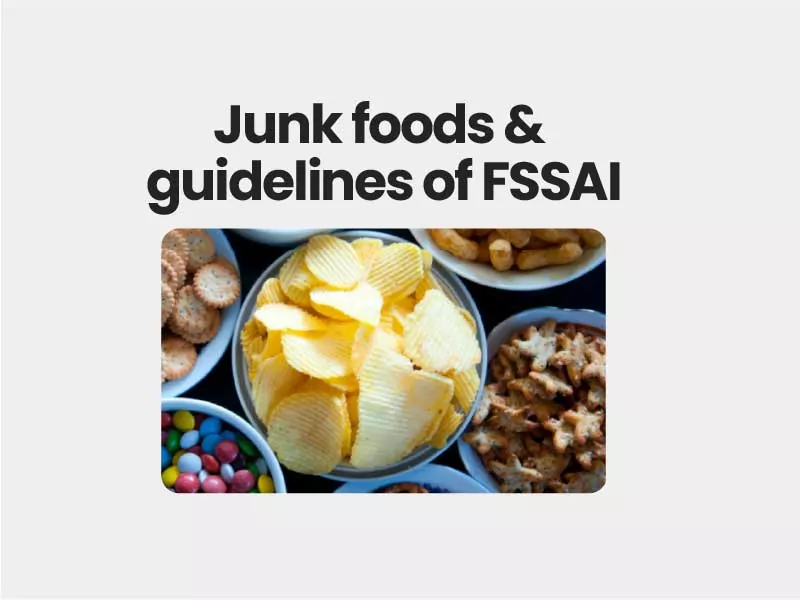Companion@360 → 7 Month programme to sharpen your writing skills → REGISTER NOW

FSSAI
The FSSAI is an autonomous body under the Ministry of Health and Family Welfare. It was established under the Foods Safety and Standards Act, 2006. It is responsible to protect and promote public health through regulation and supervision of food safety. The headquarters of FSSAI is located in Delhi and the regional offices are located in Kolkata, Guwahati, Delhi, Mumbai, Cochin and Chennai.
Why in news?
FSSAI has notified a draft regulation aimed at changing dietary habits.
It aims at prohibiting the sale and advertisement of food rich in fat, salt and sugar to schoolchildren inside the school premises and within 50 metres around it.
Regulations
- Ban on advertising and sales – It prohibits the sale and advertisement of food rich in fat, sugar, and salt to schoolchildren inside the school premises and within 50 m around it.
- Promote a balanced diet – It requires schools to simultaneously encourage and promote a safe and balanced diet.
- Ban on unhealthy foods – To shield the children from consuming unhealthy food items and snacks, FSSAI prohibits food companies that manufacture such items from advertising or offering such foods in school premises and within 50 m of the campus.
- No branding – Food companies are prohibited from using their logos, brand names and product names on books and other educational materials, as well as on school property such as buildings, buses, and athletic fields.
- Health recommendations – The agency recommends the use of a combination of whole grains, milk, eggs, and millets.
- Food products – It also listed a set of general guidelines for the selection of food products that can be offered in schools.
Prelimsure 2022 Prelims Test Series Join Now
Why such regulations?
- Court order – The 2015 order from the Delhi High Court directed the central agency to frame norms to promote healthy diets in schools.
- Malnutrition – malnutrition accounted for over seven lakh (68%) deaths in children under the age of five years in 2017 in India.
- Obesity – There is rising obesity in schoolchildren in many States. According to a July 2017 study, India had the second most number of obese children among 195 countries.
- More overweight children – A recent study found 23 States to have child overweight prevalence more than the national average. 6 States have a prevalence of over 20%.
- Impact of western diets – Several studies have shown how a western diet affects the composition and diversity of gut bacteria and sets the stage for many metabolic diseases.
Challenges
- Enforcement – The challenge will be in enforcement, in preventing the sale and promotion of unhealthy food near schools.
- Despite the sale and advertisement of tobacco products within 100 yards of a school being prohibited, the violation is more the norm than the exception.
- Shops that sell tobacco products very often also sell many of the packaged unhealthy foods.
- Inculcating habits – inculcating healthy eating habits starts at home.
Conclusion:
- Schools and parents should ensure children get adequate physical activity.
- A combination of healthy food and regular physical activity will go a long way in bringing up healthy children.
Read Also Shanta Kumar Committee Recommendations
